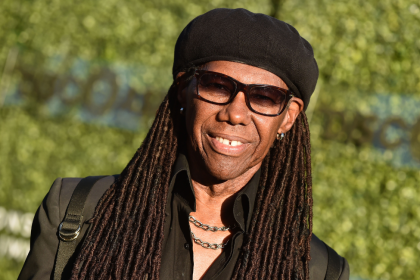In a harrowing incident that underscores the ongoing struggle against hate and violence, Charles Murrell III, a Black teacher and musician from Boston, has filed a federal lawsuit against members of the white nationalist group Patriot Front. The lawsuit stems from a brutal assault that Murrell alleges he suffered at the hands of the group in July 2022.
The assault: A terrifying experience
During a court hearing on Oct. 2, 2024, presided over by U.S. District Judge Indira Talwani, Murrell recounted the traumatic events of that day. He described being attacked while playing his saxophone near the Boston Public Library. According to Murrell, he was punched, kicked, and beaten by Patriot Front leader Thomas Rousseau and several other group members, who wielded metal shields during the assault. Murrell expressed the fear he felt during the attack, stating, “I thought I was going to die.” This chilling testimony highlights the violent reality faced by many individuals targeted by hate groups.
Understanding Patriot Front
Patriot Front is a white supremacist organization that emerged in 2017 after a split from the openly antisemitic group Vanguard America. The group has gained notoriety for its propaganda efforts, which include distributing flyers, posters, and digital content aimed at promoting their extremist views. They self-identify as “American nationalists” and claim to advocate for the preservation of America’s identity as a “Pan-European nation.” Since its inception, Patriot Front has been involved in various violent incidents, including the infamous “Unite the Right” rally in Charlottesville, Va., where Rousseau led a group of individuals affiliated with Vanguard America.
The racially motivated attack
Witnesses to the attack on Murrell described a scene of aggression and hostility. As the group marched through Boston with a banner reading “Reclaim America,” they allegedly targeted Murrell, using racially charged language, including the derogatory term “tar baby.” A witness testified that the group was “ganging up” on Murrell, pushing him with their shields and creating an atmosphere of intimidation. Murrell attempted to document the incident with his cellphone but found himself too anxious to unlock the device as the group approached him.
Legal proceedings and implications
Following the assault, Murrell took legal action against Rousseau and Patriot Front, seeking justice for the violence he endured. In a significant development, Judge Talwani found Rousseau and the group liable for the attack after Rousseau failed to respond to the civil lawsuit. This ruling is a crucial step in holding hate groups accountable for their actions and providing a measure of justice for victims of racially motivated violence.
The broader context of hate crimes
The incident involving Murrell is part of a troubling trend of increasing hate crimes and violence against marginalized communities in the United States. Organizations like the Anti-Defamation League (ADL) have documented a rise in white supremacist propaganda and violent incidents, highlighting the urgent need for awareness and action against such groups. The assault on Murrell serves as a stark reminder of the ongoing challenges faced by individuals who stand against hate and intolerance.
Conclusion
As Murrell continues his fight for justice in the courtroom, his story resonates with many who have experienced similar acts of violence and discrimination. The legal proceedings against Patriot Front not only seek to hold the perpetrators accountable but also shine a light on the broader issues of racism and hate in society. It is imperative that communities come together to support victims of hate crimes and work towards a future where such violence is no longer tolerated.

















